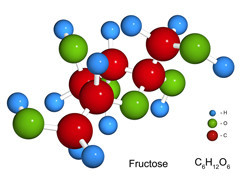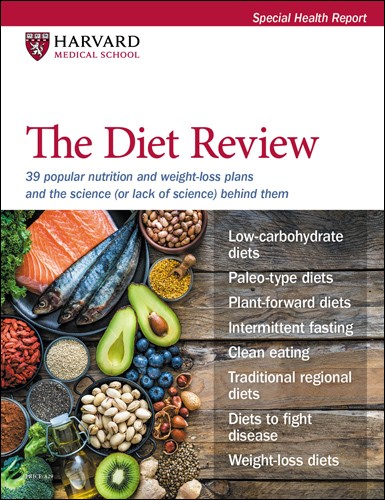Is fructose bad for you?

ARCHIVED CONTENT: As a service to our readers, Harvard Health Publishing provides access to our library of archived content. Please note the date each article was posted or last reviewed. No content on this site, regardless of date, should ever be used as a substitute for direct medical advice from your doctor or other qualified clinician.
One of many controversies mixing up the field of nutrition is whether the use of high-fructose corn syrup in soft drinks and other foods is causing the paired epidemics of obesity and diabetes that are sweeping the United States and the world. I’ve ignored this debate because it never made sense to me—high-fructose corn syrup is virtually identical to the refined sugar it replaces. A presentation I heard yesterday warns that the real villain may be fructose—a form of sugar found in fruits, vegetables, and honey. It may not matter whether it’s in high-fructose corn syrup, refined sugar, or any other sweetener.
Sounding the alarm is Dr. Robert H. Lustig, a professor of pediatrics and an obesity specialist at the University of California, San Francisco. He is a key figure in a recent New York Times article called "Is Sugar Toxic?" Here’s some background and the gist of the presentation Lustig gave as part of a weekly seminar sponsored by Harvard School of Public Health’s Department of Nutrition. (You can watch Lustig’s entire talk or a view a similar version on YouTube.)
When fructose is joined to glucose, it makes sucrose. Sucrose is abundant in sugar cane, sugar beets, corn, and other plants. When extracted and refined, sucrose makes table sugar. In the 1800s and early 1900s, the average American took in about 15 grams of fructose (about half an ounce), mostly from eating fruits and vegetables. Today we average 55 grams per day (73 grams for adolescents). The increase in fructose intake is worrisome, says Lustig, because it suspiciously parallels increases in obesity, diabetes, and a new condition called nonalcoholic fatty liver disease that now affects up to one-third of Americans. (You can read more about nonalcoholic fatty liver disease in a Harvard Health Letter article.)
Virtually every cell in the body can use glucose for energy. In contrast, only liver cells break down fructose. What happens to fructose inside liver cells is complicated. One of the end products is triglyceride, a form of fat. Uric acid and free radicals are also formed.
None of this is good. Triglycerides can build up in liver cells and damage liver function. Triglycerides released into the bloodstream can contribute to the growth of fat-filled plaque inside artery walls. Free radicals (also called reactive oxygen species) can damage cell structures, enzymes, and even genes. Uric acid can turn off production of nitric oxide, a substance that helps protect artery walls from damage. Another effect of high fructose intake is insulin resistance, a precursor to diabetes.
In the 1970s and 1980s, the "fat is bad" mantra prompted a big shift in the American diet. People and food companies replaced fat, often healthy fat, with sugar, almost always refined sugar. But this sort of low-fat diet—one rich in refined sugar and thus in fructose—is really a high-fat diet when you look at what the liver does to fructose, said Dr. Lustig.
Experts still have a long way to go to connect the dots between fructose and nonalcoholic fatty liver disease, obesity, diabetes, heart disease, and cancer. Higher intakes of fructose are associated with these conditions, but clinical trials have yet to show that it causes them. There are plenty of reasons to avoid sugary drinks and foods with added sugar, like empty calories, weight gain, and blood sugar swings. Lustig offers another.
Every year I attend scores of talks on health and nutrition. Few prompt me to change what I do or what I eat. Lustig’s talk has me looking at the amount of sugar I take in, and thinking hard about sugar in my children’s diets.
About the Author

Patrick J. Skerrett, Former Executive Editor, Harvard Health Publishing
Disclaimer:
As a service to our readers, Harvard Health Publishing provides access to our library of archived content. Please note the date of last review or update on all articles.
No content on this site, regardless of date, should ever be used as a substitute for direct medical advice from your doctor or other qualified clinician.













